Is jasmine poisonous to cats?
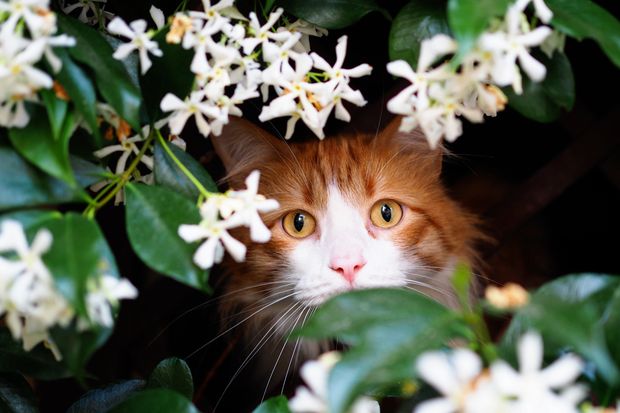
Jasmine, with its delicate white blossoms and intoxicating scent, has captivated humans for centuries. Its presence adds an air of elegance to gardens, and its essence is infused into perfumes, oils, and teas. But when it comes to our beloved feline pets, we can’t help but wonder: is jasmine poisonous to cats?
No. While jasmine is not considered highly toxic to cats, certain precautions should be taken to ensure their well-being.
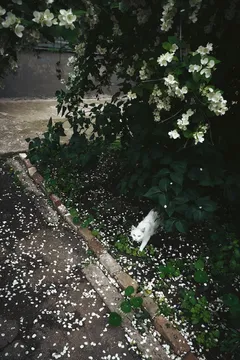
It is important to note that there are various species of jasmine, and their levels of toxicity can vary. The most common type of jasmine, Jasminum Officinale, is typically recognised as having a low toxicity. However, it is essential to prevent your feline friend from ingesting any part of the plant, as even non-toxic plants can cause mild gastrointestinal upset in cats.
The greatest concern lies in the consumption of jasmine flowers or leaves. If your curious kitty nibbles on these plant parts, they may experience symptoms such as drooling, vomiting, diarrhea, or mild stomach discomfort. While these symptoms are usually temporary and self-limiting, it is best to prevent such situations by keeping jasmine plants out of your cat's reach or opting for alternative cat-safe plants in your living space.
Additionally, it is important to consider the potential side effects of using jasmine-based products around cats. Essential oils, fragrances, or jasmine-infused products like candles may emit strong scents that can irritate a cat's sensitive respiratory system. Cats have a heightened sense of smell, and certain fragrances can be overwhelming or even toxic to them. It is always wise to ensure proper ventilation when using such products and observe your cat for any signs of discomfort or unusual behaviour.
As responsible cat owners, it is crucial to create a safe and enriching environment for our feline companions. While jasmine can add beauty and charm to our lives, it's advisable to exercise caution and take necessary measures to protect our furry friends from potential harm.
My word of advice is, if you suspect that your cat has ingested jasmine or is experiencing any unusual symptoms, it is crucial to consult with a veterinarian for proper guidance.
Is the smell of jasmine safe for cats?
As we revel in the captivating aroma of jasmine, it is natural to wonder if the scent itself poses any risks to our feline companions. While cats may be sensitive to certain scents, the smell of jasmine is generally considered safe for them. However, it is important to understand why cats have a heightened sensitivity to scents and how they may react individually.
Cats have an incredibly acute sense of smell, surpassing that of humans. They rely on their olfactory abilities to navigate their environment, detect prey, and communicate with other cats. This heightened sensitivity means that certain scents can have a more significant impact on their well-being.
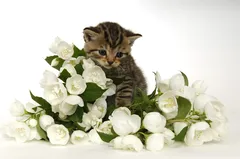
For some cats, particularly those with sensitivities or allergies, strong scents, including floral fragrances like jasmine, can be overwhelming and potentially cause mild respiratory discomfort. It's essential to observe your cat's reaction when introducing new scents into their environment.
In my personal experience, I have seen cats exhibit different responses to scents like jasmine. Some may show no aversion or reaction, while others may display signs of mild discomforts, such as sneezing or nasal congestion. It's important to note that individual cats can have varying sensitivities, and it's essential to respect their boundaries and preferences.
To ensure your cat's comfort, consider the following measures:
Proper Ventilation: When using scented products like jasmine candles or essential oils, ensure proper ventilation in your home. Open windows or use fans to circulate the air, reducing the concentration of scents and allowing your cat to navigate without feeling overwhelmed.
Observation and Adjustment: Observe your cat's behaviour when introducing new scents. If you notice signs of discomfort or agitation, consider minimizing or eliminating the use of strong fragrances like jasmine in their vicinity.
Cat-Friendly Enrichment: Cats are more likely to feel comfortable and at ease in an environment that offers enrichment tailored to their preferences. Provide stimulating toys, scratching posts, and hiding spots that engage their natural instincts rather than relying solely on scents to create a stimulating environment.
It is important to note that while the scent of jasmine is generally safe for cats, every feline is unique. If you observe any significant or concerning reactions to scents, it is advisable to consult with a veterinarian. They can provide guidance specific to your cat's health and help you create a safe and comfortable environment. Ultimately, by being attuned to our cats' sensitivities and preferences, we can ensure that they feel secure and content in their surroundings. While the smell of jasmine may be pleasing to us, let's respect our feline friends and create an environment that supports their well-being.
Is climbing Jasmine safe for cats?
The allure of climbing plants, like jasmine, can add a touch of natural beauty to our homes and gardens. While jasmine itself is generally not highly toxic to cats, there are certain considerations to keep in mind to ensure their well-being.
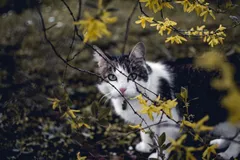
Thorns or Prickles
Some jasmine varieties, including certain climbing varieties, may have thorns or prickles on their stems or leaves. These can potentially cause harm if your cat attempts to climb or play around the plant. When selecting climbing jasmine, it's advisable to choose varieties without thorns or place the plant in an area that is inaccessible to your cat, ensuring their safety.
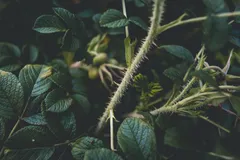
Ingestion of Leaves or Flowers
Cats are known for their curious nature, and they may be tempted to nibble on plants within their reach. While jasmine is not highly toxic, ingesting the leaves or flowers can lead to mild gastrointestinal upset in cats, resulting in symptoms such as vomiting or diarrhea. To minimize the risk, consider placing climbing jasmine out of your cat's reach or opt for cat-safe alternatives.
Cat-Friendly Jasmine Varieties
If you're a cat lover and want to incorporate jasmine into your living space, there are jasmine varieties that are considered safer for cats. For example, Star Jasmine (Trachelospermum jasminoides) is a popular climbing jasmine known for its fragrant white flowers. It is generally considered non-toxic to cats, making it a suitable choice for households with feline companions.
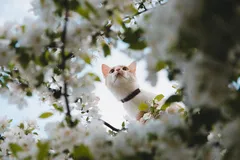
Cat-Safe Flowers
In addition to jasmine, there are other cat-friendly flowers that you can consider for your home or garden. Flowers such as roses, sunflowers, and marigolds are generally non-toxic to cats. However, it's always a good idea to research the specific flower varieties and consult with a veterinarian to ensure their safety for your feline companion.
Supervision and Environmental Enrichment
If you have climbing jasmine indoors, it's important to supervise your cat's interactions with the plant to prevent any potential mishaps. Providing ample environmental enrichment, such as cat trees, scratching posts, and toys, can help redirect your cat's attention away from the jasmine plant and fulfil their natural climbing instincts in a safe manner.
By considering these safety measures and exploring cat-friendly jasmine varieties, you can create a harmonious environment where your feline companion can enjoy the beauty of climbing plants without compromising their well-being.
Is Star Jasmine Safe for Pets?
Star Jasmine (Trachelospermum jasminoides) is a popular climbing plant known for its beautiful white flowers and captivating fragrance. If you are considering adding this plant to your home or garden and have furry companions, it's important to understand its safety for pets.
Fortunately, Star Jasmine is generally considered safe for pets, including both cats and dogs. Its non-toxic nature makes it a suitable choice for households with four-legged friends.
However, it's still important to take certain precautions to ensure their safety and well-being.
Ingestion Risks: While Star Jasmine is non-toxic, it's important to prevent pets from ingesting excessive amounts of the plant. Chewing or consuming large quantities of any plant material can potentially lead to gastrointestinal upset, such as vomiting or diarrhea. To minimize the risk, supervise your pets when they are around Star Jasmine and discourage them from nibbling on the leaves or flowers.
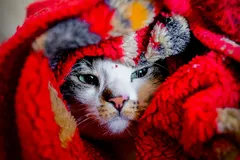
Allergic Reactions
Although Star Jasmine is generally well-tolerated, some pets may be sensitive or allergic to certain plant compounds. Keep an eye out for any signs of allergies, such as excessive scratching, redness, or swelling, and consult with a veterinarian if you notice any unusual reactions.
Training and Pet Behavior: Proper training and behavioral management play a crucial role in ensuring the safety of pets around plants. Train your pets to avoid chewing or digging in areas where Star Jasmine is planted. Providing them with suitable alternatives, such as chew toys or designated digging spots, can help redirect their attention away from the plant.
Plant Placement
Consider the location of your Star Jasmine plant to minimize any potential risks to your pets. Place the plant in an area that is not easily accessible or where your pets' interactions can be supervised. This helps ensure that they don't accidentally ingest or come into contact with the plant in a way that could cause harm.
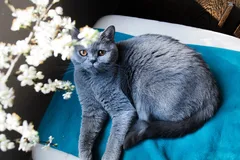
Final thoughts
By being aware of these safety considerations and taking appropriate measures, you can enjoy the beauty and fragrance of Star Jasmine while keeping your pets safe and happy.
Remember, every pet is unique, and individual sensitivities or allergies can vary. If you have any concerns or notice any adverse reactions, it's best to consult with a veterinarian for personalised advice regarding your specific pet's health and well-being.
